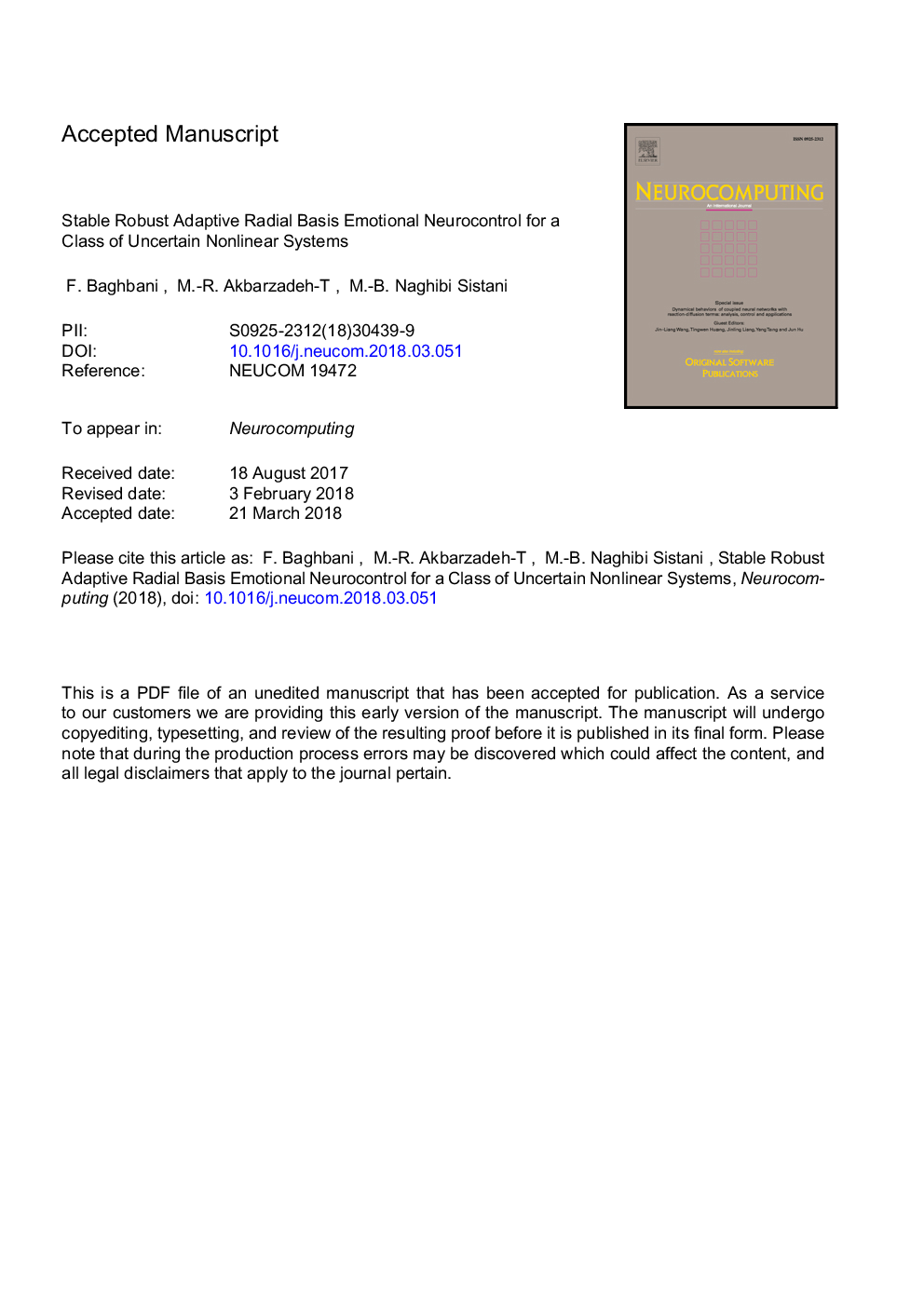| Article ID | Journal | Published Year | Pages | File Type |
|---|---|---|---|---|
| 6863673 | Neurocomputing | 2018 | 29 Pages |
Abstract
Various models of emotional learning in mammalian brain have inspired a number of cognitive control and decision-making paradigms to date. These architectures are promising in terms of their learning ability and low computation, but they generally lack rigorous analysis of stability and mathematical proof of performance. In order to remedy this weakness, this paper proposes a radial basis emotional neural network (RBENN) structure using a modified Thalamus. Lyapunov analysis is then used to derive laws of adaptation within the context of an indirect adaptive robust control architecture. Accordingly, the stability of the proposed adaptive robust radial basis emotional neuro controller (ARBENC) is proved for a class of uncertain nonlinear systems. The proposed architecture is then applied to two nonlinear systems with partially unknown dynamics with or without disturbances and noisy conditions. In comparison with competing radial basis function neural, fuzzy, and emotional controllers, ARBENC exhibits fast learning while keeping a simple structure, leading to improved error performance and less overall computational time. These numeric results are consistent with earlier reports on emotion-based approaches, the main advantage here is ARBENC's amenity to theoretical analysis and proof of stability.
Related Topics
Physical Sciences and Engineering
Computer Science
Artificial Intelligence
Authors
F. Baghbani, M.-R. Akbarzadeh-T, M.-B. Naghibi Sistani,
